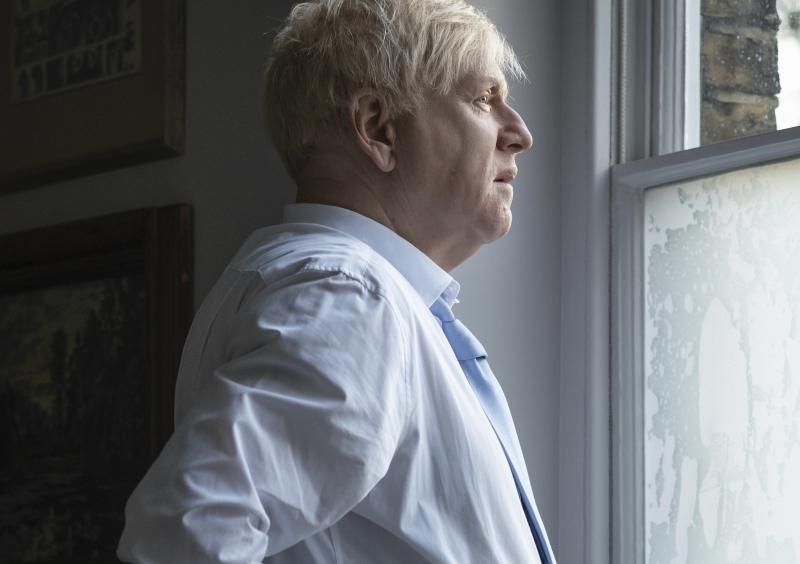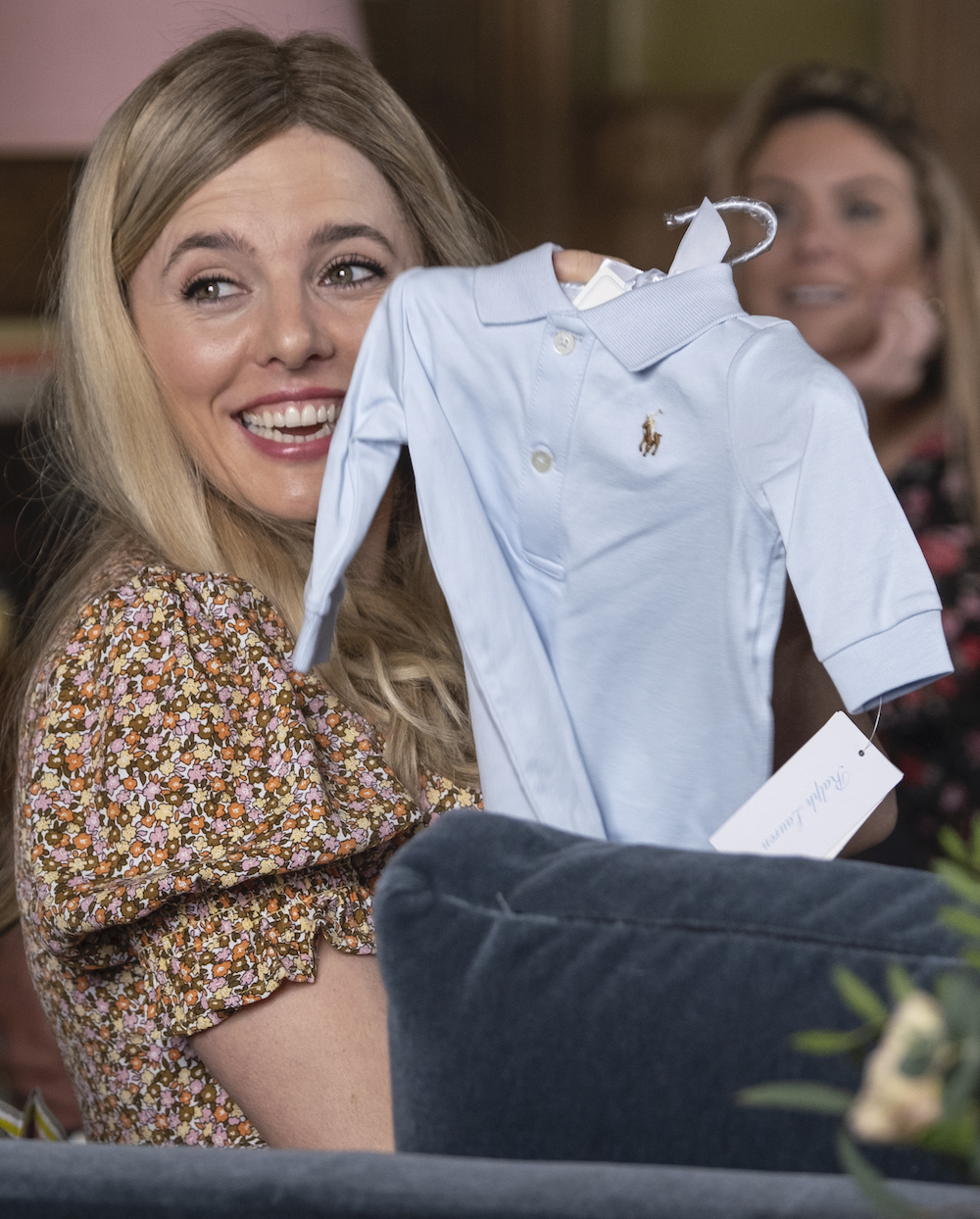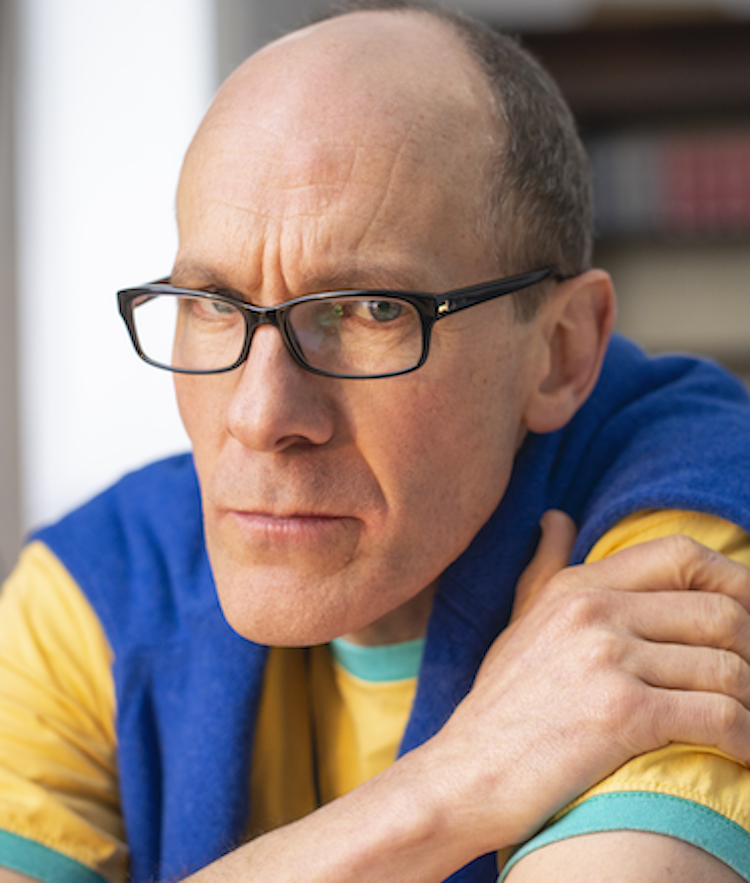This England, Sky Atlantic review - how Boris's No 10 got Covid wrong | reviews, news & interviews
This England, Sky Atlantic review - how Boris's No 10 got Covid wrong
This England, Sky Atlantic review - how Boris's No 10 got Covid wrong
Kenneth Branagh gets Boris (mostly) right, but what does this docudrama hope to achieve?

From underneath the messy ash-white thatch of hair, a strange mooing suddenly issues: Sir Kenneth Branagh is wrestling with Boris Johnson’s odd way of saying the “oo” sound. It’s a brave attempt but ultimately a bit wayward, rather like the drama series Branagh is starring in, This England, Michael Winterbottom’s six-part reconstruction of Boris’s early days as PM, Covid, lockdown and all.
Branagh has certainly captured the former PM’s stance, arms held unnaturally behind him, shoulders hunched, trousers at risk of dropping as he shuffles in and out of a quick succession of government offices and posh ministerial retreats, punning and jesting as he goes. Who better than Branagh to spout Shakespeare, Churchill, Caesar and Pericles, as his Boris is made to do every time he enters a room, even if he does slip into an Afrikaans accent at times?
 But what – who – are we watching here? Each episode begins with an ominous warning: this is “fiction based on real events”. Immediately, we have to be on the alert, trying to assess how much of each scene is “real” and how much fictionalised. And as ordinary viewers, obviously we can’t. We recognise the events we all lived through, but what went on behind closed doors we are in no position to know.
But what – who – are we watching here? Each episode begins with an ominous warning: this is “fiction based on real events”. Immediately, we have to be on the alert, trying to assess how much of each scene is “real” and how much fictionalised. And as ordinary viewers, obviously we can’t. We recognise the events we all lived through, but what went on behind closed doors we are in no position to know.
Take Boris’s Brexit Day jingoistic speech to the nation, full of empty assurances about the nation’s great future. So far, so accurate. But then we see him addressing his team privately later, amid cork-popping and riotous braying, sounding out the parts of John of Gaunt’s speech in Shakespeare’s Richard II that suit him, about our “sceptr’d isle”. Did this happen? Or is that speech there just so Winterbottom can set Boris up for another speech in the closing moments of the series, as UK Covid deaths soar, where he completes John of Gaunt’s speech, with its reference to “That England... [that] hath made a shameful conquest of itself”. Has Boris ever been that sombrely circumspect and regretful? Give the scene to a tragedian as practised as Branagh, and it is bound to sing. But is this bit of fictionalising in aid of truth or, just as likely, dramatic impact?
Throughout This England, we are asked to submit to its imagined vision of Boris v Covid, as the price of admission. I would have preferred a fully fledged documentary, like the films made by the BBC’s Hospital strand at the Royal Free, with added political commentary by people working at No 10 at the time or observing its machinations as journalists (surprisingly, the latter aren’t really in the picture in This England until Pippa Crerar and others investigate Dominic Cummings’ Barnard Castle visit more than halfway through; Tim Shipman of The Sunday Times acted as consultant to the series).
Take off the table the issue of whether Winterbottom’s fictions are true or not, and we are left with a series of entertaining impersonations, spliced with very poignant chunks of ordinary people’s lives as they battle Covid (and succumb to it). Some of these impersonations have substance, such as Jeremy Seal‘s Cabinet Secretary Mark Sedwill, holding his own against a vituperative Cummings (Simon Paisley Day, even more wraithlike than the real thing, pictured below), but, for all the Shakespeare quoted, there isn’t a villain here worthy of the bard’s writing skills.
 Cummings is depicted as a monomaniac whose only strategies are to focus-group an issue and give people the sack. He’s on the side of winning at all costs. His attempt at running No 10’s policy is so nakedly ambitious that even Carrie Symonds notices what’s happening (Ophelia Lovibond is a spitting image, pictured above) and starts poisoning the PM’s ear against him. Did she? Cummings is hardly an Iago, not even a cold Henry Bolingbroke to Boris’s jolly Falstaff (whom the PM doesn’t seem to quote). Even health minister Matt Hancock (an excellent turn from Andrew Buchan) seems more glib and cocky than malicious, impressively forceful in his demands for thousands more track and tracing kits. His slip shows when he doesn’t reach his announced target and then finds a fudge to make his sums seem to add up.
Cummings is depicted as a monomaniac whose only strategies are to focus-group an issue and give people the sack. He’s on the side of winning at all costs. His attempt at running No 10’s policy is so nakedly ambitious that even Carrie Symonds notices what’s happening (Ophelia Lovibond is a spitting image, pictured above) and starts poisoning the PM’s ear against him. Did she? Cummings is hardly an Iago, not even a cold Henry Bolingbroke to Boris’s jolly Falstaff (whom the PM doesn’t seem to quote). Even health minister Matt Hancock (an excellent turn from Andrew Buchan) seems more glib and cocky than malicious, impressively forceful in his demands for thousands more track and tracing kits. His slip shows when he doesn’t reach his announced target and then finds a fudge to make his sums seem to add up.
Meanwhile, Carrie is made to act like a Sloaney Marie Antoinette, asking Boris to consult Chris Whitty about a personal health matter as he is fighting the pandemic, arranging a baby shower even as people start dying and lockdown looms. Her concerns, other than giving birth, seem to revolve around going on holidays and getting the family out of No 10. Did she really behave like that? It echoes sentiments in the press and oils the wheels of the drama, but how do we know? She and Boris are like a panto pairing, denied full dramatic density because the script is busy making them seem out of touch and wrong-headed. The memorable characters here are the victims: the skeletal elderly residents of care homes and their distraught staff, an ailing Black care worker and his wife and young family.
Some of the comic touches in the piece work well, such as the running gag of Boris phoning all of his many children to tell them family news, one by one; also, his stylised nightmares, purportedly his children intoning on the banks of the Styx. As the episodes progress, an insistent drumming on the soundtrack becomes louder, attempting to ratchet up the tension further. But there is no last-act crisis or resolution in sight: we know the pandemic will continue into 2022, with different strains emerging to plague us. Lee Cain (Derek Barr), the foul-mouthed comms director at No 10, will quit before 2020 is up, as will Sedwill and Cummings, though none of these departures is fictionally re-enacted.
Instead, we get the predictable end-captions about total UK infections and deaths by May 2020 and, for extra firepower, footage of the real Cummings usefully telling a select committee that lockdown was called too late, that ministers failed and that leaving the nation’s fate to advisers like him was “crackers”. Happy to agree with him there, but a more forensic approach would have hit harder. As some of the families who lost loved ones in care homes are now taking legal action against the government, we can look forward to that, revisiting all these events again without the prosthetics and knee-jerk Bard-bait.
Add comment
The future of Arts Journalism
You can stop theartsdesk.com closing!
We urgently need financing to survive. Our fundraising drive has thus far raised £49,000 but we need to reach £100,000 or we will be forced to close. Please contribute here: https://gofund.me/c3f6033d
And if you can forward this information to anyone who might assist, we’d be grateful.

Subscribe to theartsdesk.com
Thank you for continuing to read our work on theartsdesk.com. For unlimited access to every article in its entirety, including our archive of more than 15,000 pieces, we're asking for £5 per month or £40 per year. We feel it's a very good deal, and hope you do too.
To take a subscription now simply click here.
And if you're looking for that extra gift for a friend or family member, why not treat them to a theartsdesk.com gift subscription?
more TV
 theartsdesk Q&A: director Stefano Sollima on the relevance of true crime story 'The Monster of Florence'
The director of hit TV series 'Gomorrah' examines another dark dimension of Italian culture
theartsdesk Q&A: director Stefano Sollima on the relevance of true crime story 'The Monster of Florence'
The director of hit TV series 'Gomorrah' examines another dark dimension of Italian culture
 The Monster of Florence, Netflix review - dramatisation of notorious Italian serial killer mystery
Director Stefano Sollima's four-parter makes gruelling viewing
The Monster of Florence, Netflix review - dramatisation of notorious Italian serial killer mystery
Director Stefano Sollima's four-parter makes gruelling viewing
 The Diplomat, Season 3, Netflix review - Ambassador Kate Wyler becomes America's Second Lady
Soapy transatlantic political drama keeps the Special Relationship alive
The Diplomat, Season 3, Netflix review - Ambassador Kate Wyler becomes America's Second Lady
Soapy transatlantic political drama keeps the Special Relationship alive
 The Perfect Neighbor, Netflix review - Florida found-footage documentary is a harrowing watch
Sundance winner chronicles a death that should have been prevented
The Perfect Neighbor, Netflix review - Florida found-footage documentary is a harrowing watch
Sundance winner chronicles a death that should have been prevented
 Murder Before Evensong, Acorn TV review - death comes to the picturesque village of Champton
The Rev Richard Coles's sleuthing cleric hits the screen
Murder Before Evensong, Acorn TV review - death comes to the picturesque village of Champton
The Rev Richard Coles's sleuthing cleric hits the screen
 Black Rabbit, Netflix review - grime and punishment in New York City
Jude Law and Jason Bateman tread the thin line between love and hate
Black Rabbit, Netflix review - grime and punishment in New York City
Jude Law and Jason Bateman tread the thin line between love and hate
 The Hack, ITV review - plodding anatomy of twin UK scandals
Jack Thorne's skill can't disguise the bagginess of his double-headed material
The Hack, ITV review - plodding anatomy of twin UK scandals
Jack Thorne's skill can't disguise the bagginess of his double-headed material
 Slow Horses, Series 5, Apple TV+ review - terror, trauma and impeccable comic timing
Jackson Lamb's band of MI5 misfits continues to fascinate and amuse
Slow Horses, Series 5, Apple TV+ review - terror, trauma and impeccable comic timing
Jackson Lamb's band of MI5 misfits continues to fascinate and amuse
 Coldwater, ITV1 review - horror and black comedy in the Highlands
Superb cast lights up David Ireland's cunning thriller
Coldwater, ITV1 review - horror and black comedy in the Highlands
Superb cast lights up David Ireland's cunning thriller
 Blu-ray: The Sweeney - Series One
Influential and entertaining 1970s police drama, handsomely restored
Blu-ray: The Sweeney - Series One
Influential and entertaining 1970s police drama, handsomely restored
 I Fought the Law, ITVX review - how an 800-year-old law was challenged and changed
Sheridan Smith's raw performance dominates ITV's new docudrama about injustice
I Fought the Law, ITVX review - how an 800-year-old law was challenged and changed
Sheridan Smith's raw performance dominates ITV's new docudrama about injustice
 The Paper, Sky Max review - a spinoff of the US Office worth waiting 20 years for
Perfectly judged recycling of the original's key elements, with a star turn at its heart
The Paper, Sky Max review - a spinoff of the US Office worth waiting 20 years for
Perfectly judged recycling of the original's key elements, with a star turn at its heart

Comments
KENNETH BRANAGH MY LONDONGRAD